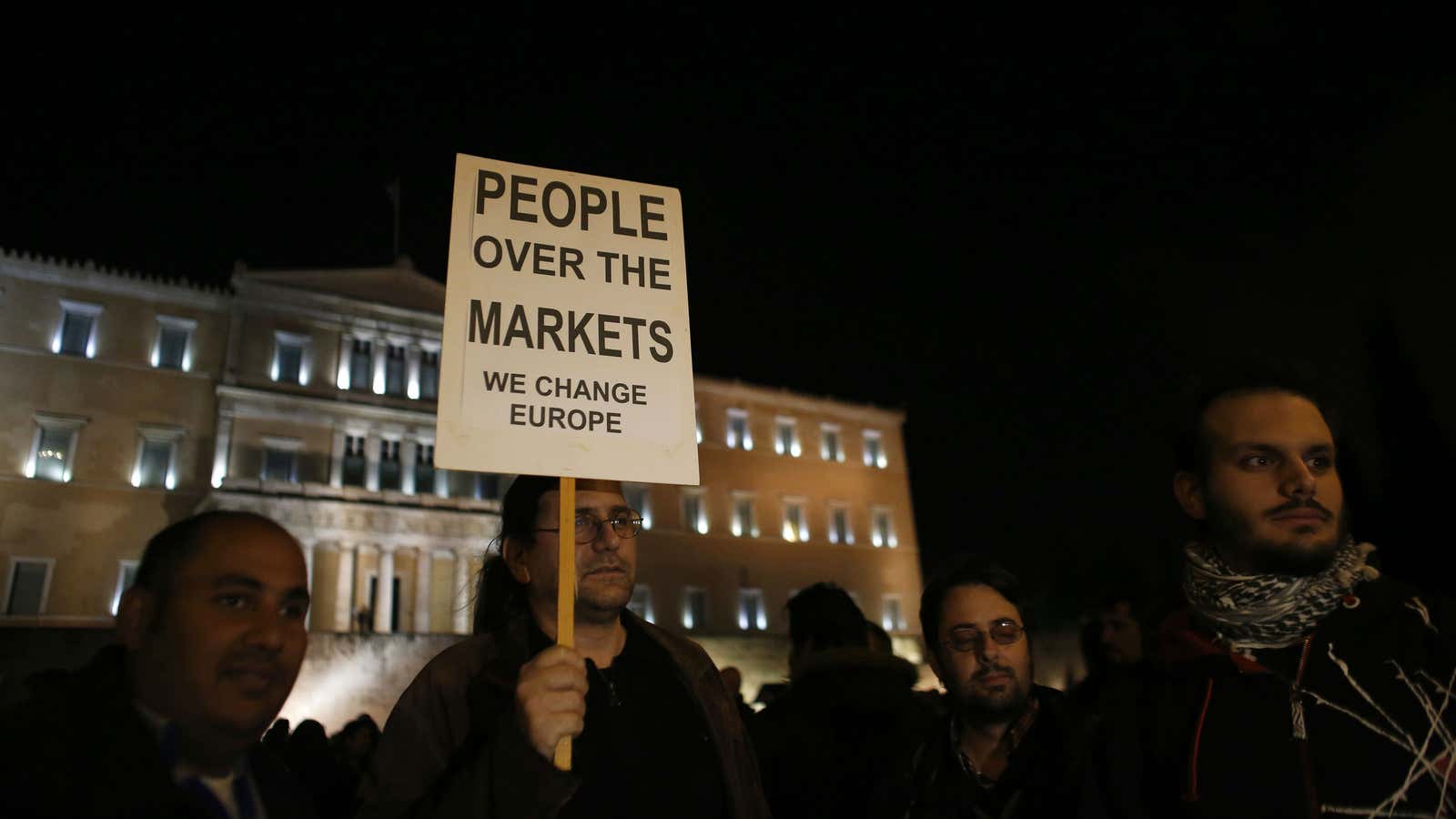I was born in Italy. But I grew up in Europe.
The Europe of Schengen, of the Erasmus exchanges, of the build up for the ”ingresso in Europa,” the “entrance in Europe” which was actually only the Eurozone—because we actually founded Europe, we were Europe.
At the turn of the century, Europe was talked about like an external place we were about to enter. An old man from my grandmother’s hometown—a small village hidden in the mountains of southern Italy—commented once to a friend: “I don’t know, why are we all entering Europe at once? Perhaps I should go, see how it is, and then you can join?”
But we did—all together indeed—enter this new phase of our history. I remember the gradual conversion of the lire—so many!—into euros—so few. Still, it was exciting. Europe was real, and in our pockets.
The euro felt to me like the most wonderful of currencies. Different origins—I remember checking the back of the coins to see where they travelled from: France? Greece? Germany?—but all the same values. It was just like the Union I believed in: so many languages, climates, foods, traditions, but the same values—so hard to define and yet so distinguishable for there was, and there indubitably still is, such thing as being European.
I had just started university then. Four years later, I went to Paris on an Erasmus scholarship, which had since 1987 moved students across European universities. I learned a new language, and met other students from Spain, Portugal, Germany—the whole range. For some, lives took unprecedented turns—some of which are now embodied in their children, who are half this, and half that, but fully European.
That was the Europe I wanted and loved. The wise, old continent that’s been around forever, and after making all the mistakes that were humanly possible (and that’s a lot of mistakes), finally became something to be proud of.
What I didn’t know, when Europe still felt like a dream, is that it was about to become an economic nightmare.
My generation is the so-called “lost generation of Europe.” In Italy, we’re called “generazione €1000” (the thousand euro generation)—because at 30, this is as much as many can possibly hope to earn, regardless of our education, even if they have a job.
The kids that grew up with Europe, in Europe, saw it change from a great opportunity into a loan shark that seized our futures.
The Europe we see now is little to dream of. It’s a joyless affair of banks, bottomless debts and bills that never add up. It feels like a merciless deus ex machina that keeps demanding high taxes and cuts even after people have sacrificed more than was possible.
This cannot be what the past 60 years of our collective history amounts to—a reality where an Eurocrat (Jyrki Katainen, the vice president of the European Commission) dares to say, unapologetically:
“We don’t change our policy according to elections.”
This Europe is soulless—it’s the monster you get when you do the economics without the politics. Because we are citizens, before we are taxpayers, and no institution that calls itself democratic can demand from the latter without listening to the former.
In 2012, talking about the future of Europe, Umberto Eco said:
“In the face of the European debt crisis, I speak as a person who doesn’t understand anything about economy, we have to remember that only culture, aside from war, bonds our identity.”
I am Italian. I am European. And so when I look at the images of the thousands rallying in Athens, supporting their government efforts to put an end to austerity, I am Greek, too. I see my Europe, in Syntagma Square.
I see democracy, and the demand for cooperation.
The Greeks are not protesting against Europe, they are protesting against its central bank’s policies. It is not the same thing. And we cannot—will not?—accept that it is.
Syntagma Square is the agora of Europe, tonight. And it’s only fit: its name come from συντάσσω, it means to put together, and to order.
